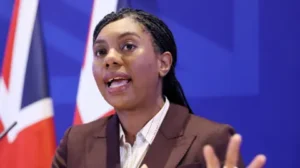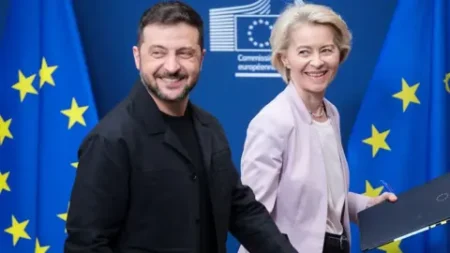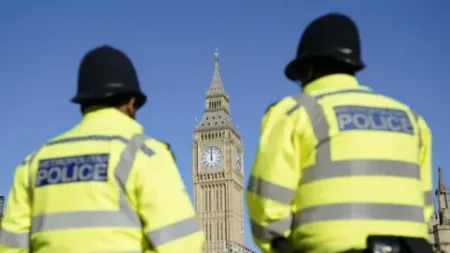As the United States Army approaches its 250th birthday, a significant parade showcasing military hardware is set to take place in Washington, D.C. This grand event notably coincides with the birthday of former President Donald Trump. However, this juxtaposition has raised alarms among both former and current officials who express concerns regarding the increasing intertwining of military operations with political matters. The situation becomes particularly sensitive as many perceive the Army’s involvement in such celebrations as a deviation from its traditionally apolitical stance.
The upcoming parade promises an overwhelming display of military might, featuring millions of pounds of equipment, including tanks, Bradley and Stryker armored vehicles. It is poised to culminate with an address from Trump himself, which accentuates fears surrounding the militarization of political events. The timing of this display is critical; in recent weeks, about 4,000 National Guard members were deployed in Los Angeles following civil unrest. Similarly, large numbers of Guardsmen were mobilized in Texas to maintain order. The climate is charged further by reports of uniformed soldiers at Fort Bragg enthusiastically cheering Trump during a political speech, reminiscent of the atmosphere during campaign rallies, raising issues regarding the propriety of such displays of military support for political figures.
Experts who spoke with CNN highlighted their views that recent events at Fort Bragg represent a significant public relations misstep for the Army. The military has stringent regulations about political engagement, emphasizing neutrality and non-partisanship to uphold public trust. However, the prevailing sentiment among military officials is that once the President is involved in such events, the military has little autonomy, and the White House essentially dictates the proceedings. This arrangement has led to concerns amongst veterans and active-duty personnel alike about the military being used for political gain.
One unnamed official expressed a strong conviction against the appearance of political paraphernalia on military installations, characterizing the practices as an exploitation of the military’s generally favorable public opinion to advance political agendas. Interestingly, there is a spectrum of opinion among military officials regarding the implications of the planned parade. While some assert that the event should be viewed as a celebration of military history and accomplishments, others fear that the public may perceive it as an overt endorsement of Trump’s presidency, given his substantial participation in the planning and execution of the parade.
Current military officers commented on the ambiguity surrounding limits on political activities for service members, suggesting a growing discomfort with undefined boundaries regarding what constitutes acceptable behavior. Instances once deemed as political biases are now tolerated and sometimes celebrated, disturbing the foundational norms of military impartiality. Moreover, the discourse surrounding political actions has escalated during the Biden administration, with various officials voicing their discontent over the perceived politicization of the military.
Several high-profile occurrences illustrate the precarious balance military leaders must maintain. For instance, President Biden faced backlash in 2022 when two Marines were visible during his speech in Philadelphia, prompting accusations of violating Department of Defense (DoD) protocols regarding service member participation in political events.
The Pentagon has established rigorous guidelines that direct active-duty service members to abstain from any partisan political activities. This directive also includes avoiding behaviors that could imply official approval or sponsorship of any political initiatives or candidates.
The dynamics at Fort Bragg were particularly highlighted when military personnel were seen booing the media and other political figures during Trump’s address. Vendors at the event also reportedly sold merchandise associated with the MAGA movement, creating a troubling image wherein service members were potentially complicit through their display of political bias while in uniform. The nature of the event raised questions about the young soldiers’ judgment and the influences exerted upon them in a celebratory environment.
Col. Mary Ricks from the 18th Airborne Corps sought to clarify that the event was organizationally coordinated with America 250, an entity striving for nonpartisan support for the U.S. Semiquincentennial Commission established by Congress in 2016. Ricks affirmed the Army’s unwavering commitment to its values and apolitical service; however, the rhetoric from various officials suggests a deep-seated anxiety about the potential ramifications of perceived military-partisan entanglements on public trust.
The implications of these worrying trends are far-reaching, particularly concerning recruitment and funding—both critical to the Army’s operational efficacy and infrastructure. A former senior Defense Department official articulated the dangers of using military events as backdrops for aggressive political rhetoric. This scenario not only risks damaging military trust but also amplifies a growing disdain among the populace when service members appear to be utilized for validating partisan agendas.
Notably, the speech Trump delivered at Fort Bragg was not an isolated occurrence but echoed sentiments from his commencement address at the U.S. Military Academy at West Point, where his MAGA hat stood out amongst the traditional military attire. Critics of such behavior argue that it represents a severe departure from respectful civil-military relations and threatens to erode the centuries-old principles governing interactions between political leaders and military personnel.
Despite acknowledging that political figures often employ military contexts to further their exacerbated agendas, current











